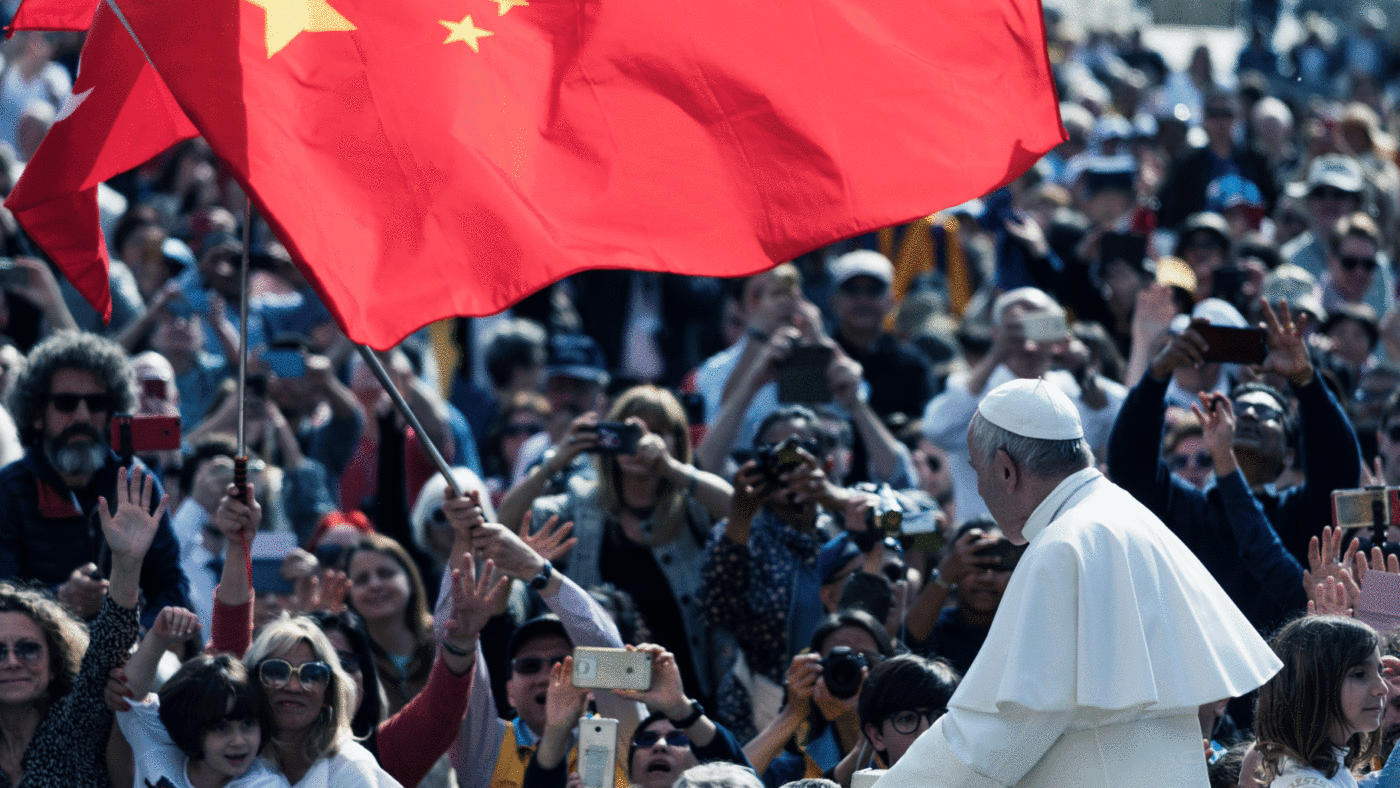After the white smoke poured from the roof of the Sistine Chapel in 2013, the newly elected Pope Francis peered out from a balcony in the Vatican in a plain white cassock. He greeted the vast crowds in St Peter’s Square with a simple “Buenas noches!” and a slightly nervous wave.
It set the tone for Francis’ papacy and the image of a compassionate Catholic church, which he has worked hard to cultivate over the past seven and a half years.
As Pope he has largely focused on people at the margins of society. He has gone further than any previous Pontiff to buildbridges with LGBT Catholics, as demonstrated by his recent comments about same sex relationships.
In Francesco – a new documentary released last week – the Pope says that “Homosexuals have a right to be a part of the family. They’re children of God and have a right to a family. Nobody should be thrown out or be made miserable because of it.”
He goes on to say “What we have to create is a civil union law. That way they are legally covered.”
His comments are not surprising given his support for civil partnerships when he was Archbishop of Buenos Aires, nor do they change Catholic teaching in any way.
But the significance of having these comments on the record from the Pope should not be underestimated – particularly for gay Catholics – and they mark a historic shift in tone from the Vatican.
The comments were widely reported – the Pope talking about gay people is pretty much guaranteed to be a story any day of the week. Nobody would have been more aware of the impact of his comments than Francis himself.
Whatever people might think about his papacy, Francis is widely recognised as a brilliant communicator. He understands the media and modern communications better than perhaps any other religious leader – and many secular leaders for that matter.
So why did this media savvy Pope choose this moment to make these comments on same sex relationships?
The documentary was apparently recorded last year and given the exclusive interviews with Pope Francis and Pope Emeritus Benedict XVI, it’s fair to say the Vatican would have had a say in when the documentary was made public.
It was eventually released on Wednesday 21 October, and religious affairs correspondents around the world duly filed copy about it – almost entirely focusing on the Pope’s comments on civil partnerships.
The next day the Vatican announced that a controversial agreement with the Chinese Government on the appointment of Bishops in China would be extended.
Little is known about the agreement, originally reached between the Vatican and China in September of 2018, except that it involves input from the Chinese Government on the appointment of Bishops to Chinese dioceses – something that is usually the sole decision of the Catholic Church in other countries.
Critics say the agreement gives too much power over internal Church affairs to the Chinese Government and provides tacit support to the Chinese Communist Party. Supporters of the agreement say it’s a pragmatic way forward that provides at least some religious freedom for Catholics in China.
The announcement on Thursday last week confirmed that the agreement will be extended for another two years until 2022. The Vatican’s Secretary of State, Archbishop Paul Gallagher hailed the renewed agreement as “quite remarkable”.
But success in securing a deal was by no means certain or popular. The Vatican had come under huge diplomatic pressure not to extend the agreement, particularly from the US administration with Secretary of State Mike Pompeo making a trip to the Vatican in September almost exclusively to make the case against a renewed agreement with China.
Pressure was also piled on by Cardinal Joseph Zen, the former Bishop of Hong Kong, who has called the Vatican’s line on China “sickening”.
While renewing the agreement with China would not have happened without consent from the top, Pope Francis has said virtually nothing about the agreement in public. He will be well aware of the risks involved in making an agreement with a country like China, with such an appalling human rights record, and the damage this could do to his brand of compassionate Catholicism.
So far, the China agreement has received relatively little press attention, with most newspapers and magazines filling their religious content with the Pope’s comments on same sex relationships. What could have been a disastrous public relations week for the Vatican, ended with the Pope’s liberal reputation enhanced.
The release of Francesco last week has certainly helped the Vatican. Whether the timing was a miracle or a carefully planned communications exercise, perhaps depends on your faith.
Click here to subscribe to our daily briefing – the best pieces from CapX and across the web.
CapX depends on the generosity of its readers. If you value what we do, please consider making a donation.


